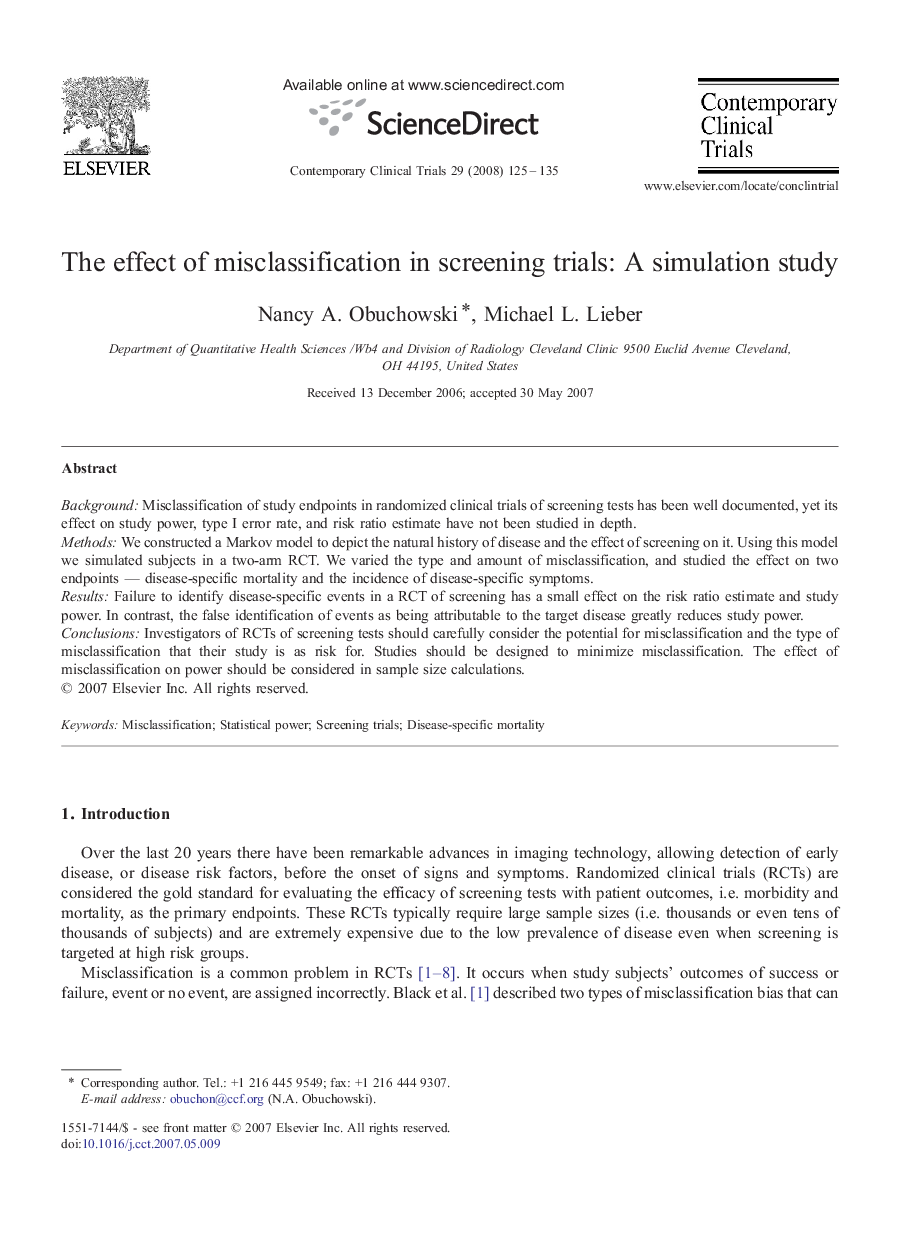| Article ID | Journal | Published Year | Pages | File Type |
|---|---|---|---|---|
| 3463396 | Contemporary Clinical Trials | 2008 | 11 Pages |
BackgroundMisclassification of study endpoints in randomized clinical trials of screening tests has been well documented, yet its effect on study power, type I error rate, and risk ratio estimate have not been studied in depth.MethodsWe constructed a Markov model to depict the natural history of disease and the effect of screening on it. Using this model we simulated subjects in a two-arm RCT. We varied the type and amount of misclassification, and studied the effect on two endpoints — disease-specific mortality and the incidence of disease-specific symptoms.ResultsFailure to identify disease-specific events in a RCT of screening has a small effect on the risk ratio estimate and study power. In contrast, the false identification of events as being attributable to the target disease greatly reduces study power.ConclusionsInvestigators of RCTs of screening tests should carefully consider the potential for misclassification and the type of misclassification that their study is as risk for. Studies should be designed to minimize misclassification. The effect of misclassification on power should be considered in sample size calculations.
